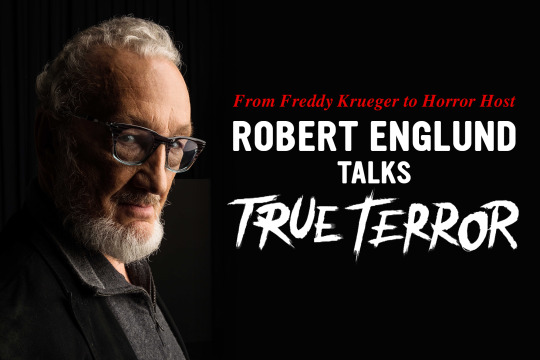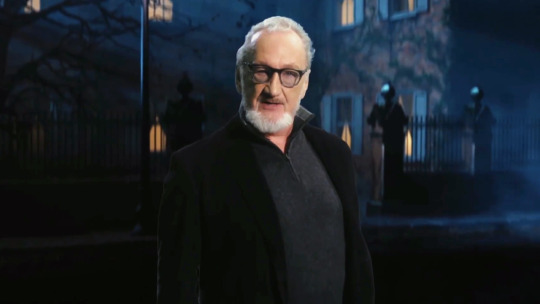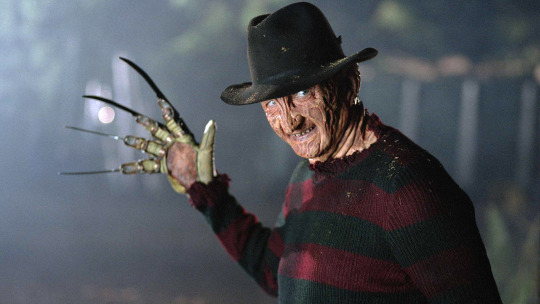#(( DASH COMMENTARY - Hearsay You Say ))
Text
// Tag Dump
#(( IC - The Law That Walks ))#(( OOC - Out Of Contracts ))#(( RP - Active Investigation ))#(( ASK - Reviewing Testimony ))#(( SUBMISSION - Reviewing Evidence ))#(( LIYUE - The City Of Contracts ))#(( DASH COMMENTARY - Hearsay You Say ))#(( DASH GAMES - Kangaroo Court ))#(( MEME - The Case Before Us ))#(( CRACK - Kangaroo Court ))#(( AESTHETIC - Adept-esque ))#(( PROMO - Calling To The Stand ))#(( CW - Trigger ))
0 notes
Text
Putting this under a read more for the sake of anyone not wanting to read it. TW: mild negativity.
I’d just like to start off by saying I’m not directly mad at anyone. I don’t know how many of you knew the context of what was going on with the thread between Lute and Lucifer, and I know that dash commentary is a thing that just tends to happen whenever anything remotely engaging happens, but I will admit, there were a lot of things that muses said about Lucifer that really put me off from the thread that we were writing in question, and it kind of made me a touch uncomfortable. I understand that none of the muses would have proper context, they wouldn’t know what was going on beyond just hearsay, and I accept that part, but the narrative being picked up of Lucifer sexually taking advantage of Lute and calling him disgusting or sickening based off an assumption another muse made when it was supposed to be little more than a fun thread of these two characters who care about each other getting it on after playful teasing on Lucifer’s end for Lute being attracted to him to the point of literally being a peeping-tom was, admittedly, kind of hard for me to stomach. It put me off actually writing any of the smut really quickly and made me tempted to just retcon the whole thing and pretend it never happened, which isn’t a good feeling.
Lucifer was not taking advantage of Lute. He was fucking another character (Mammon) in another thread, to which Lute’s mun wrote her to be actively watching with interest and excitement. I thought it would be fun to have Lucifer tease her over this, with the idea that he knew she was watching the entire time and that she was into it, and so decided to offer her sex (or at the very least a make out session) because he knows she finds him hot and wanted to give her an opportunity to have some fun with him herself rather than being a voyeur. It was never intended to be anything other than consensual fun, and the fact that it blew out of proportion as it has is admittedly, a touch upsetting.
It’s resolved now, me and Lute’s mun both decided that the smut wouldn’t be happening because it didn’t feel like the right time for them shortly after, and we’re taking it in a different direction. Again, not saying I’m mad at anyone, or that this is a complaint directed at anyone in particular, I just felt I had to say something about it because it began to bother me and made me feel not so great for a little.
From here forward, I won't be responding to any reactions from muses that are not directly tied to the event/plot. I also won’t be talking about it anymore OOCly either. This is the last I’ll be bringing it up.))
5 notes
·
View notes
Text
Robert Englund Talks True Terror

If anyone knows true terror, it's Robert Englund. The horror icon haunted a generation with his portrayal of Freddy Krueger in Wes Craven’s A Nightmare on Elm Street and its seven sequels, in addition to appearing in an array of genre cult classics. His latest gig finds him not only without makeup but also without a character to embody, as he hosts Travel Channel's new series, True Terror with Robert Englund, in which he interweaves twisted tales guided by newspaper accounts, expert commentary, and reenactments. In his own words, Englund describes True Terror as "comfort food from the dark side," equal parts The Twilight Zone and Unsolved Mysteries with a dash of Dateline.
"I think what drew me to it is the challenge of being an on-camera host personality," he confesses. Indeed, Englund draws influence from Rod Serling and Robert Stack, in addition to tapping into flamboyant parts of his persona, citing Vincent Price and Klaus Kinski. "It’s not True Terror with Robert Englund pretending to be somebody else. But, there’s a bit - I don’t want to say an embellishment, but a little dusting of all of those influences on my choices when I host." He also mentions the difficulty of transitioning between the series' on-screen appearances and voice-over narration. "I don’t always see all of the images that they’re shooting because we’re working different schedules at different times... It might be a really gothic image; it might be something violent; it might be something lyrical and elegiac; so you have to make that transition and make those decisions. It’s kind of a challenge, but I like it."

Unlike many of the shows that came before it, True Terror is based on documented accounts rather than hearsay. "It’s something you can tune into and learn something dark from the sort of underbelly of the American psyche," notes Englund. "But all of the stories began as journalism. They began as newspaper articles. And that’s what I think distinguishes it from two guys in a Louisiana swamp seeing a UFO." The series' Bigfoot segment was verified by an unlikely corroborator: "Our source is Teddy Roosevelt, president of the United States, on a hunting party in Montana with Native American guides." Another stand-out story covered in the first season occurred during the smallpox epidemic. Englund explains, "I had no idea that there was some scam between coroners and the guys that drove the charity wagons to the cemetery, coffin makers, and the last buck stopping with the gravedigger. That, in fact, people were literally being buried alive for profit. And this is as recently as late last century."
If afforded the opportunity of another season of True Terror, Englund would love to explore serial killer H.H. Holmes, as detailed in Erik Larson's The Devil in the White City, which the host recently read. "It's about the 1893 Chicago World’s Fair, the Columbian Exposition, and simultaneously America’s first serial killer, who exploited the growth of the fair and the growth in the population in Chicago and the country girls coming to town for the fair. There’s some estimates that he may have killed up to 200 people." He'd also like to delve into more Native American folklore. "We touch on it in a couple of segments, but there’s some interesting stuff with that, even with Native Americans and Sasquatch or Native Americans and their own ghost stories."

Englund equates horror and true crime to a communal experience akin to church. "I think people loved sitting in the dark together and being frightened together, especially younger people, because the younger people think they’re going to live forever... The only time you really confront death now, unless you have a sick relative or a friend, is in a horror movie or the thriller or the serial killer film, because we have an identification with the potential victim, the person in jeopardy. We’re emotionally involved. We have empathy and catharsis with that, and we sit in the dark together and respond to that in the old movie theaters. And I think it was multiplied... We’re there on the couch with the lights dimmed down, sitting by the glow of the flat screen, and we do surrender to that identification with the jeopardy of whatever person is being threatened in a horror film. And I think we need that. I think it’s just our way of kind of a substitution for dealing with our own mortality."
Once afraid of snakes, Englund faced his fear when he acted with a baby albino python in 2000's Python, and he hasn't personally experienced any supernatural occurrences outside of déjà vu. "I’ve walked into rooms that I’ve dreamed of before I entered them. And it’s happened a couple of times, which is really strange." But his mother used to tell him a story about her own ghost encounter as a sorority girl during the Los Angeles flood of 1938. "There was a loud knocking at the door, and she opened it up, and one of the sorority girls came in all wet... My mom made her a cup of coffee, and they talked for a while." The girl indicated that she was going to a boarding house up the road to stay with a friend and then left. "The next morning, the police came to the sorority house, and they told them that they had found this girl’s body. But they had found it 36 hours before, which would have been about 12 to 15 hours before my mother made a cup of coffee for her. And my mother... she went back and found the coffee cup, and it had lipstick on it."

The opening story of True Terror's premier episode involves a familiar subject to Englund: the dream world. On the subject of Freddy Krueger becoming a part of modern folklore, the man behind the makeup expounds, "The whole concept of Nightmare on Elm Street is very symbolic. I think, basically, it’s loss of innocence in America. The one clue that nobody ever picks up on; Freddy has the line, 'Every town has an Elm Street.' Well, every town also has a Broadway and a Main Street and an Oak Street; but Elm Street’s also the street that JFK was assassinated on in Dallas. That’s sort of the beginning of our loss of innocence and our distrust of government and our group American paranoia, and Wes [Craven] was sort of turning that around and making that also the loss of innocence for a generation and, in particular, young women."
While it remains unknown if Englund will ever return to his iconic role of Freddy Krueger for one more film, the veteran actor teases an exciting upcoming role on a popular series. "I’ve got something coming up that I’m going to be shooting later this month. I’m not allowed to talk about it, but it also is very challenging, on a show that’s terribly, terribly popular. And I’m looking forward to the fan reaction to that as well." Until then, catch him on True Terror with Robert Englund, premiering this Wednesday, March 18, on Travel Channel.
#robert englund#true terror#freddy krueger#a nightmare on elm street#nightmare on elm street#true terror with robert englund#travel channel#trvl#interview#article#twilight zone#the twilight zone#unsolved mysters#horror
95 notes
·
View notes
Text
It’s odd to me how controversial this thread is. It crosses my dash every now and then, always with different commentary, sometimes with people agreeing and sometimes with people assuming the op wants them to write dry textbooks instead of fun adventures. I’m linking to the post rather than writing a comment on it because I don’t want to clog up anyone’s notifications with this wall of text but I still do want to talk about it.
Fantasy is a genre that deeply struggles with the repetition of cliches. Some of these cliches are good tools when used carefully. Others buy in to harmful misconceptions. If you repeat conventional Fantasy Realm Stuff without stopping to question where it came from, what it says, and why it says that, you can end up perpetuating damaging stereotypes. We don’t need more stories where women are are forced to be either child brides or badasses who hate embroidery. We don’t need fantasies about thoughtlessly mowing down ethnically othered barbarian invaders. The european middle ages is a very politicized period of history, and misconceptions about it are often deeply insidious. The point of questioning how things in your setting came to be isn’t to halt your story to write an encyclopedia (although it seems a bit disingenuous to act like this behavior is unheard-of for a fantasy writer). The point of asking all these questions is to found your story on an internal logic rather than the shifting sands of potentially problematic hearsay.
There are so many issues with fantasy that thoughtlessly repeats what goes before it. Misogyny is perpetuated for the sake of “accuracy” even though there are tons of inaccuracies elsewhere. People of color are often othered or excluded entirely. Writers parrot old, deeply harmful ethnic stereotypes from other works, sometimes without even knowing what they are. Nobles are presented as more complex and interesting that people of lower socioeconomic classes. Conventional beauty is equated with goodness. The only way to get rid of this is to question and carefully think through everything. Everything! Why are we all in a tavern? And why is it ale that we’re drinking? Why must the Baron’s daughter be married at 16? What would happen if she didn’t have to? Are we recognizing that the inner lives of the poor are as complex and worthy of respect as the inner lives of the nobility? if the answer to that last one is “no”, why not, and can we start doing so immediately? Who is being presented as worthy of admiration? Why? Who is being presented as an acceptable target for violence? Why? Who isn't present at all? Why? Where did this all come from? And what does it all mean? You have a responsibility to know. That's what thinking through your worldbuilding is about.
14 notes
·
View notes
Text
naughty or nice | crozier, gore | 475
The boy isn't loud, but crying always carries.
On his way up the shrouds Francis receives a relieved glance or two: the foremast hands are young men, mostly, and career sailors; a child in tears is beyond them. Beyond Francis, too, really, but Lieutenant Stewart had been adamant: "You have sisters," he'd insisted, somewhat desperately.
When he makes the foretop, the boy is standing as he must—one hand behind his back, eyes forward and down. Whatever the offence he has been caught at, the punishment is surely expired hours since. There are teartracks frozen on his cheeks.
"What's this, then," Francis says, gently.
"Mr. Crozier, sir," says the boy, thickly, without raising his eyes.
He is eleven: Francis knows this from the captain's proud commentary. A year younger than most, and in his father's ship too: such credentials will be the envy of many when he comes to his exams. The boy does not seem to realize his luck. He will die an admiral, Francis thinks, while men like Francis scrub along on half-pay or Greenwich pensions, until catarrh or cholera collects.
"Do you ever wish you was home," the boy says, stumbling over it. "Sir," he says, as an afterthought. Around them the wind is rising: they had best be down soon, and not only for supper. The surge of the North Atlantic arcs them degree by degree across the curve of the world and back: the horizon is a long black unbroken line, the low sun invisible behind a drawn curtain of cloud. Salt in the nose and the mouth and the blood. No, Francis thinks, never.
The boy is looking at him, beseeching.
"Come, Graham," says Francis, "We all wish for silly things sometimes."
"It's Christmas tomorrow," Gore says, almost to himself.
"Aye," says Francis, and isn't sure what else is wanted. "We'll have a time of it, won't we," he says, eventually, and puts his hand somewhat awkwardly on the boy's shoulder.
The boy startles: stares. Then turns, as quick as lightning, and leans: wraps his arms round Francis's waist and embraces him like a brother, tight, and then darts away, as if he might be struck. Scrubs a hand across his cheek and sniffs: draws himself up.
"Yessir," he says. "Sorry, sir. Dismissed, sir?" And he's away before Francis can keep him, down into the slowly darkening ship.
-
In the days after Graham's death they are all quieter. In Erebus's wardroom Crozier pours himself a drink: Fitzjames is telling Fairholme some heroic thirdhand tale of Graham's dash, no doubt half fiction and half hearsay.
"You knew him well, sir," says LeVesconte to Crozier, not quite a question. The flat-pan voice of restrained frustration: his eyes on the glass in Crozier's hand.
"His father," Crozier says, around the amber burn of whiskey.
"Ah," says LeVesconte, politely.
>>it struck me the other day that crozier and gore probably overlapped on doterel, as a twenty-two-year-old mate and an eleven-year-old volunteer respectively. sorry about this.
#12daysofcarnivale#canonical character death#gen#this is probably not the way this prompt was meant to go!!
19 notes
·
View notes